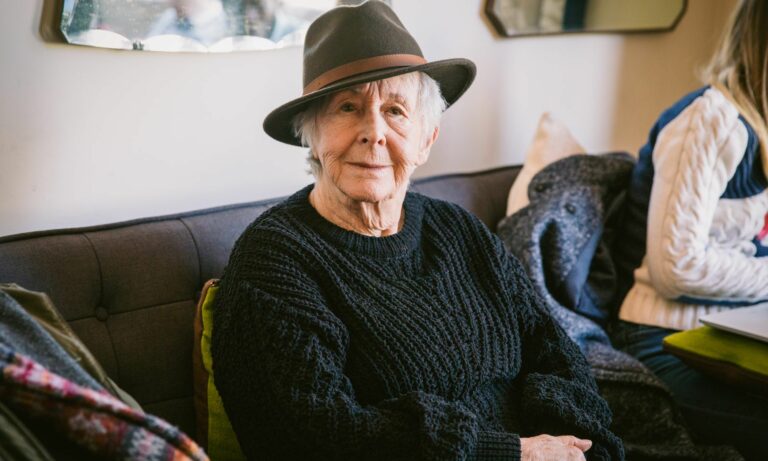Live in Elderly Care
Looking for live in elderly care at home? At Hometouch, we provide specialised home care for the elderly across the UK. Our live in home care for the elderly service is rated “Good” by the CQC.
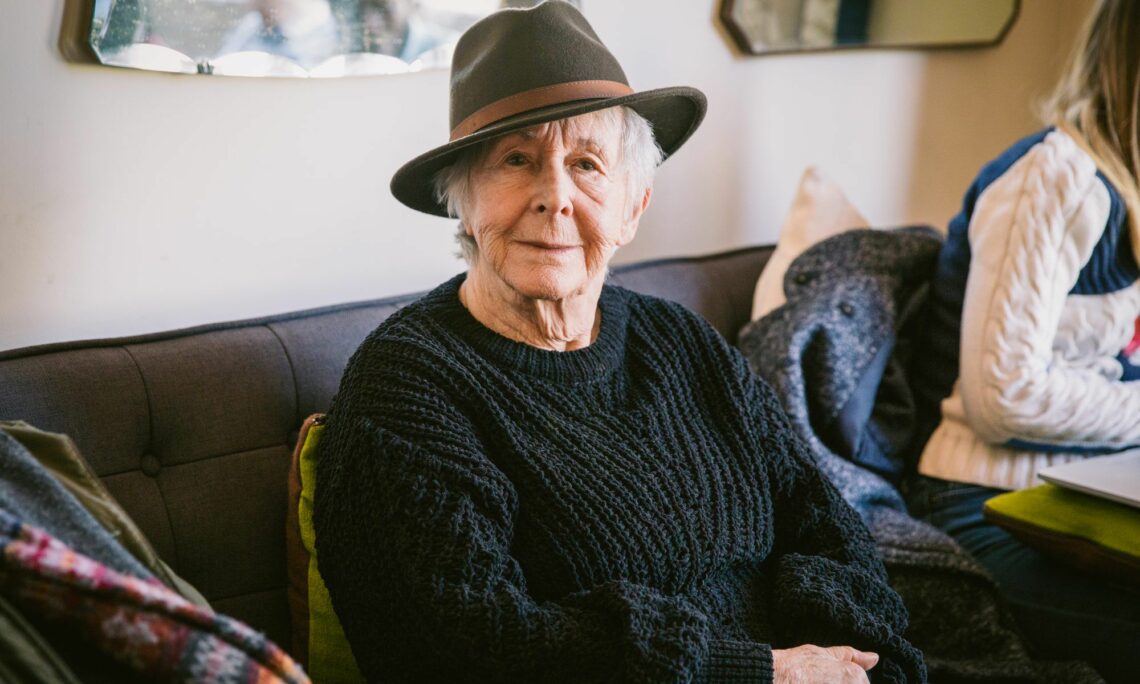
Elder Home Care: Why Choose Hometouch?
Hometouch is one of the UK’s leading providers of elderly live in care. We offer excellent live in carers for the elderly and have a clinical team to support your needs.
- Keep your loved ones at home and in the comfort of their known surroundings
- Always know what’s happening by using our online platform to monitor activities such as medication, daily activities and moods
- Every carer we hire is fully qualified, DBS checked, has specialised training in live in and dementia care, and has undergone background checks.
Live in elderly care: Everything you need to know
Elderly care services can support people to live safely and independently in their own homes. As we grow older, illness, infirmity and dementia can make it a struggle to manage household chores, get out and about, and cook, shop and care for ourselves. When this happens, elderly live in care may be required.
Elder home care services can provide the practical and emotional support needed to help your loved one stay healthy and happy in the home they love.
What is elderly homecare?
Elderly home care is support provided for people in their home. Live in care for the elderly is handled by professional carers who are trained to help and support across a wide variety of different areas.
The carers are available to help out all throughout the day and night, if necessary. Provision consists of a single carer who works full time or by a selection of carers who work on a rota, for example, a week on, a week off.
Private elderly care is typically funded by the family of the care recipient or with savings from the care recipient. Other sources of funding for help for elderly living at home include council funded elderly care or NHS elderly care which is typically funded by the Clinical Commissioning Group (CCG).
Professional elderly carers come into the home to provide help with anything from basic household tasks and popping to the shops to administering medication, assisting with dressing and washing, and help going to the loo.
The right level of elderly live in care will depend on your loved one’s health, their level of function and their preferences. Elderly home help may be needed for just a few hours to provide a helping hand and a friendly face, or around-the-clock elderly nursing care to support complex needs like incontinence, tube feeding or ventilation.
Live in care for elderly at home: Round the clock elderly homecare
Live in care for older people is becoming increasingly popular as an alternative to moving loved ones into care homes and is especially popular for people who have more complicated elderly support needs.
This is because it allows elderly relatives to stay in their own home while having their ever changing needs met. For many it is a great way to still feel independent whilst getting the care they require.
Daily home care for elderly in their own homes has the limitation that the carer may only be present for short parts of the day.
When should live in home care for the elderly be considered?
Live in home care for elderly is appropriate in the following situations:
- Your elderly relative finds it difficult to cope with regular everyday routines like cooking, cleaning, washing, or going to the bathroom.
- Your elderly relative doesn’t want to move into a care home for support and enjoys the freedom and familiarity of their own home.
- Your elderly relative is still able to get around in their home safely or the property can be adapted so it is safe for them going forwards.
Who is elderly home care suitable for?
Elderly home care is suitable for those requiring support in the following situations:
- Those in need of companionship
- Those in need of personal care, such as dressing, toileting, and washing
- Those who need help with the taking of medication
- Those who need help with preparing and cooking food
- Those who need help with general housework and cleaning
- Those who need help and support to prevent falls
- Those who need help with their pet such as walking, feeding, and the animals toilet needs
- Those who need help to go outside for short periods, like visiting the shops, hairdressers, chiropodist, etc
- Those who need help to enjoy hobbies and activities they are used to doing
- Those who need help with monitoring blood pressure and / or their heart rate
- Those who need care for injuries, surgeries, and wounds
- Those who need help to manage catheters and / or IVs
- Help educating patients on how they can stay safe and help themselves
- Help educating loved ones on how they can provide support
- Help with transportation to and from GP offices, hospitals, and other important appointments
Help for the elderly in their own home is a good choice for those who may become confused, anxious, or upset when placed in a new environment like a care home. This applies particularly to people who have dementia or other cognitive illness where routine, continuity, and familiarity of surroundings is important and can improve quality of life.
How do you determine the level of elderly live in care necessary?
The correct level of elderly live in care will depend on your loved one’s health, their level of function, and their preferences.
They may need a visiting home help for just a few hours to provide a helping hand and a friendly face, or around-the-clock elderly nursing care to support complex needs like incontinence, tube feeding or ventilation.
Normally an assessment will be undertaken before any decision on type and level of help is made. This will help clarify the best options for elderly care at home.
What does an elderly care assessment entail?
An elderly care assessment will be undertaken before the level of care is decided. The assessment will look at the following areas:
- Any emotional or social needs of the senior
- The level of skills and abilities the senior already has
- Any disabilities or physical difficulties the senior may have and any risks that this may present
- Any health issues that may require help
- What the needs and wishes of the senior are and what they would like to happen
- The opinions of any medical professionals involved with the senior (GP, nurse, etc)
- The assessments findings will be discussed with all parties before a level of care decided on.
What happens after an elderly care assessment?
Once the findings of the care assessment have been discussed with all relevant parties (the senior in question, their family, and any medical professionals involved), a care plan will be discussed and agreed.
This plan will detail the needs of the senior and the level of care we think is suitable for their needs. If this is agreed, we will make all the necessary arrangements to put it into place.
Vetted live in elderly carers you can trust
We understand that your loved one’s safety is the most important thing to you. Keeping them safe, healthy, and well is your paramount concern and you want to see that they live out their twilight years supported and happy.
That’s why all our elder carers are vetted and checked to ensure that they are someone that can not only do the job of looking after your family member well, but can be trusted by you and your whole family. All our carers are professionals and we make sure that full background checks are undertaken, including certificate and reference checks, as well as relevant criminal records checks.
Different types of elderly care at home?
Visiting elderly care is a form of drop-in care, provided in the home and arranged on an hourly basis. A home carer will visit your loved one’s home at set times to offer practical, social and personal support and care.
Visiting elderly care can include personal assistance, a helping hand with chores, supervision of medication, as well as help with getting in and out of bed. Visiting care can support your loved one to live more independently and can drastically improve their quality of life.
Elderly companionship care can offer more continuity of care, familiar environments and most importantly and a trusted confidante to reduce loneliness and isolation.
How can elderly companionship care help?
Elderly companionship care can support people who feel isolated and lonely. In the UK, around half of all people over 75 live alone. Poor mobility and / or the loss of a partner can mean that many older people lack the ability or confidence to get out and about.
Over a million elderly people in this country say that they often feel lonely, which impacts on their health and wellbeing.
Live in care for the elderly can provide a companion for senior citizens and give them something to look forward to on a daily basis.
Elderly companion carers provide emotional support and company. If your loved one is healthy and reasonably independent but lonely, a companionship carer can provide friendship, help, conversation and a friendly face.
Elderly companionship care can offer more continuity of care, familiar environments and most importantly a trusted confidante to reduce loneliness and isolation.
Find out more about the different types of care.
Different types of elderly care at home?
Visiting elderly care is drop-in care, provided in the home and arranged on a hourly basis. A home carer will visit your loved one’s home at set times to offer practical, social and personal care support.
Visiting care can include personal assistance, a helping hand with chores, supervision of medication and help with getting in and out of bed. Visiting care can support your loved one to live independently and improve their quality of life.
Is live in elder care right for my family?
For the frail, unwell or isolated elderly, live-in elderly care can provide the support needed to stay in the home they love, close to family, friends and all that is familiar and reassuring to them.
If your loved one needs around-the-clock care and supervision, then a live-in elderly carer is an excellent alternative to a nursing home. Live-in carers move into your loved one’s home to provide care, support and company, day and night.
Live in help for elderly relatives can be ideal if your elderly relative is unable to live their life safely and comfortably without assistance.
Elderly nursing care
Qualified nurses can provide clinical support and care for elderly people with serious illnesses and complex health needs, including incontinence, stomas, catheters and tube feeding. Nurses are clinically trained so can both oversee and deliver quality live in care for the elderly. In many instances, nurses can delegate tasks to live in carers.
Elderly nursing care can be provided permanently for people living with advanced disease, disability or progressive conditions. However, temporary nursing care can also be provided to support older people recovering from an operation, accident or illness.
What about elderly respite care?
Elderly respite care can support overworked and exhausted family carers. Caring can be enormously challenging physically and emotionally. The demands of care can have implications on your health, your work and your family. Respite caregivers can provide support, reassurance and a helping hand, so that you can get the rest you need. Senior live in care takes these responsibilities off you so that you can concentrate on your daily commitments.
What are the benefits of elderly care?
Elderly care can support your loved one’s health, wellbeing and independence in their own home. Elderly home care offers many benefits including:
- Regular routines: With elderly live in care at home, your loved one can keep to the daily routines that they’re used to, which can boost wellbeing, improve function and maintain independence, particularly if they are affected by dementia.
- Flexible care: Elderly home care can adapt to respond to the person’s evolving needs. A trusted home carer can start off by offering companionship and a helping hand, but as your loved one loses function, they may be able to extend the service to support self-care and toileting or supervise medication.
- Familiar surroundings: The elderly may have spent a lifetime surrounded by home comforts, photos, friends and family. Simple pleasures like a favourite mug and their comfortable chair can boost wellbeing and quality of life. Thus, senior live in care ensures that seniors are not separated from their familiar environment.
- Care for couples: Elderly care can support elderly couples to continue living together at home for their twilight years. Professional home carers can address both their needs and ensure they stay safe and well.
- Four-legged friends: Pets can be a fantastic source of love and companionship for the elderly. Elderly home care can ensure your loved one can stay at home with their furry friend; if needed, carers can help out with pet walks, care and toileting too.
These are just a few benefits of elderly live in care at home.
What do elderly live in carers do?
Everyday our elderly live-in carers support families and individuals cope with life’s challenges, from tasks such as grocery shopping or ironing to some of the most demanding and emotional circumstances that life throws at us.
8:00
Wake & personal care
Support with waking, washing, dressing and or toileting – always with consideration and respec
9:00
Breakfast
Make breakfast, reminders to take medication, drink water and other prompts to help maintain daily wellbeing
10:00
Activities
Assistance with keeping the body moving and getting fresh air, from a simple stroll down the road to prescribed activities
12:00
Lunch
Make lunch together (if possible) allowing for participation, inclusion, bonding and mental stimulation
14:30
Downtime
Some gentle muscle strengthening, a cup of tea and a light afternoon nap. If appropriate, the carer may take a short break.
16:30
Light house work
Prepare for dinner, meal planning, grocery shopping Help with chores such as ironing and laundry
20:00
Bed time routine
Personal care before bed, a hot cocoa, reading or listening to the radio. Lighting adjusted to assist circadian rhythm
23:00
Night care starts
Assistance with getting into bed and toileting. Help with night time WC visits if needed
* Everyone’s needs and routines are different, and unique, this is a basic illustration of what our elderly live in carers can help you and your loved one with in a 24 hour elderly care period
What makes our carers special?
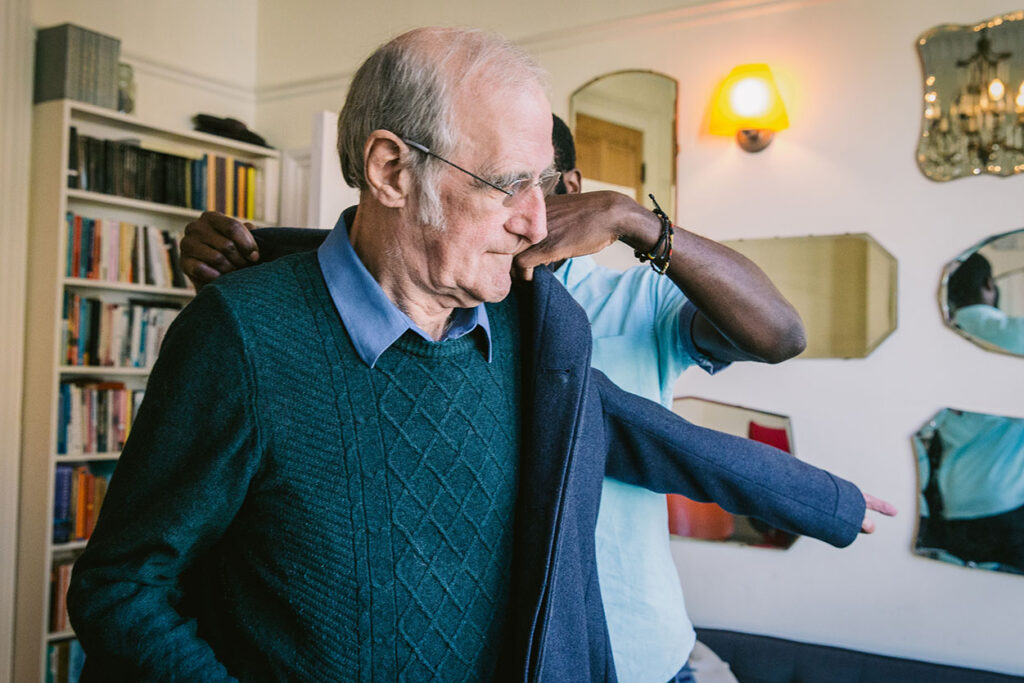
What makes our carers special?
Hometouch elder live in carers are special; in fact we believe they are modern-day heroes. They are compassionate and caring and individually chosen because of their experience, skills, and ability to make a real difference. Communication is a fundamental part of care, which is why our live in carers are fluent in English, have warm, friendly personalities, and are selected to suit your loved one’s personality and needs. Sometimes just a sweet cup of tea and a good chat can make all the difference.
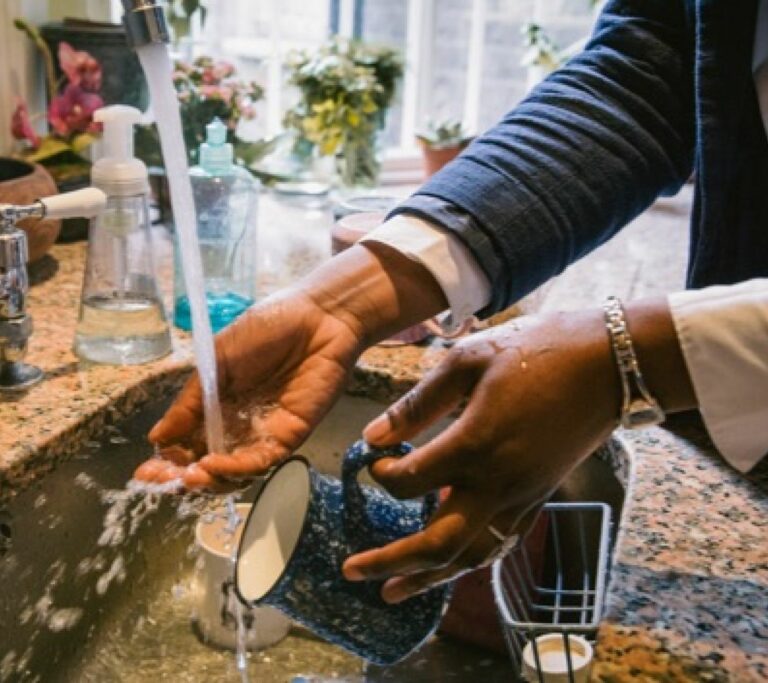

With our elderly live-in home care service, we work hard to ensure your carer is entirely suited to your loved one’s circumstances and personality. We also know that conversation is fundamental to caring, which is why all our live-in carers are fluent in English and have a warm, friendly personality. Sometimes just a sweet cup of tea and a good chat can make all the difference. At Hometouch, all our carers need to pass the most critical test: Would we want them to care for our own family?
- Why is brain health important?
 Why is brain health important?
Why is brain health important?Even before you leave the womb, your brain works throughout your life to control your body’s functions and helps you understand and interact with the world around you. Maintaining a…
- Exercise and dementia preventionExercise and dementia prevention
Physical activity can improve the health of mind, body and spirit, and there’s evidence that exercise can protect against dementia. Research is confirming that staying active may help those affected…
- The early signs of dementiaThe early signs of dementia
The early signs of dementia include forgetfulness, misplacing of objects, struggling to find the right words, personality changes, and confusion. We all walk into the kitchen and forget what we…
- What causes dementia?
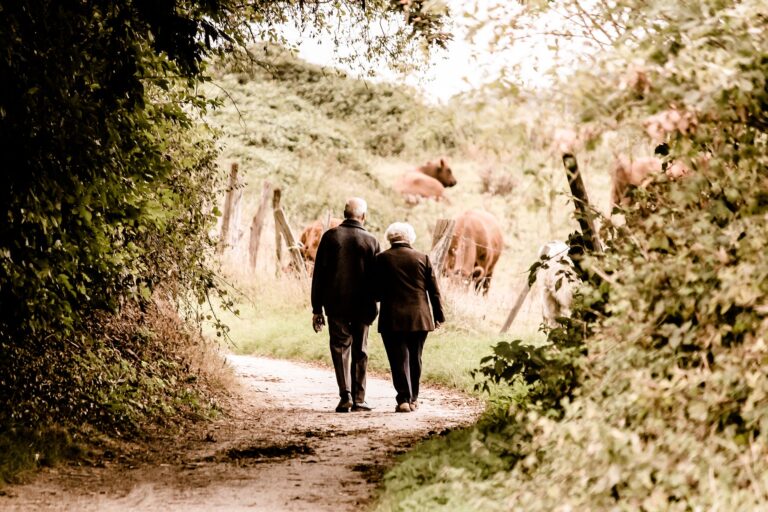 What causes dementia?
What causes dementia?When doctors talk about dementia, they’re referring to a set of symptoms, not a disease with a specific cause. People with dementia struggle with memory and reasoning. The key symptoms…
Apply for live-in care jobs
Hometouch has been one of the best companies I have worked for in the care sector! I have always been told I’m appreciated and been made to feel like it too. I’m so happy to be a part of the Hometouch team
Shaheen

Looking for live-in care in your county?
a
- Live-in care in Aberdeen
- Live-in care in Aberdeenshire
- Live-in care in Angus
- Live-in care in Argyll
- Live-in care in Ayrshire
b
- Live-in care in Banffshire
- Live-in care in Bedfordshire
- Live-in care in Berkshire
- Live-in care in Berwickshire
- Live-in care in Bristol
- Live-in care in Buckinghamshire
- Live-in care in Buteshire
c
- Live-in care in Caithness
- Live-in care in Cambridgeshire
- Live-in care in Cheshire
- Live-in care in Clackmannanshire
- Live-in care in Clwyd
- Live-in care in Cornwall
- Live-in care in Antrim
- Live-in care in Armagh
- Live-in care in Down
- Live-in care in Durham
- Live-in care in Fermanagh
- Live-in care in Londonderry
- Live-in care in Tyrone
- Live-in care in Cumbria
d
- Live-in care in Derbyshire
- Live-in care in Devon
- Live-in care in Dorset
- Live-in care in Dumfries and Galloway
- Live-in care in Dumfriesshire
- Live-in care in Dunbartonshire
- Live-in care in Dundee
- Live-in care in Dyfed
e
- Live-in care in East Ayrshire
- Live-in care in East Dunbartonshire
- Live-in care in East Lothian
- Live-in care in East Renfrewshire
- Live-in care in East Riding
- Live-in care in East Sussex
- Live-in care in Edinburgh
- Live-in care in Essex
f
g
- Live-in care in Glasgow
- Live-in care in Gloucestershire
- Live-in care in Greater Manchester
- Live-in care in Guernsey
- Live-in care in Gwent
- Live-in care in Gwynedd
h
- Live-in care in Hampshire
- Live-in care in Herefordshire
- Live-in care in Hertfordshire
- Live-in care in Highland
i
- Live-in care in Inverclyde
- Live-in care in Inverness-shire
- Live-in care in Isle of Man
- Live-in care in Isle of Wight
j
k
- Live-in care in Kent
- Live-in care in Kincardineshire
- Live-in care in Kinross-shire
- Live-in care in Kirkcudbrightshire
l
- Live-in care in Lanarkshire
- Live-in care in Lancashire
- Live-in care in Leicestershire
- Live-in care in Lincolnshire
- Live-in care in London
m
- Live-in care in Merseyside
- Live-in care in Mid Glamorgan
- Live-in care in Midlothian
- Live-in care in Moray
n
- Live-in care in Nairnshire
- Live-in care in Norfolk
- Live-in care in North Ayrshire
- Live-in care in North Lanarkshire
- Live-in care in North Yorkshire
- Live-in care in Northamptonshire
- Live-in care in Northumberland
- Live-in care in Nottinghamshire
o
p
- Live-in care in Peebleshire
- Live-in care in Perth and Kinross
- Live-in care in Perthshire
- Live-in care in Powys
r
- Live-in care in Renfrewshire
- Live-in care in Ross and Cromarty
- Live-in care in Roxburghshire
- Live-in care in Rutland
s
- Live-in care in Scottish Borders
- Live-in care in Selkirkshire
- Live-in care in Shetland
- Live-in care in Shropshire
- Live-in care in Somerset
- Live-in care in South Ayrshire
- Live-in care in South Glamorgan
- Live-in care in South Lanarkshire
- Live-in care in South Yorkshire
- Live-in care in Staffordshire
- Live-in care in Stirling
- Live-in care in Stirlingshire
- Live-in care in Suffolk
- Live-in care in Surrey
- Live-in care in Sutherland
t
w
